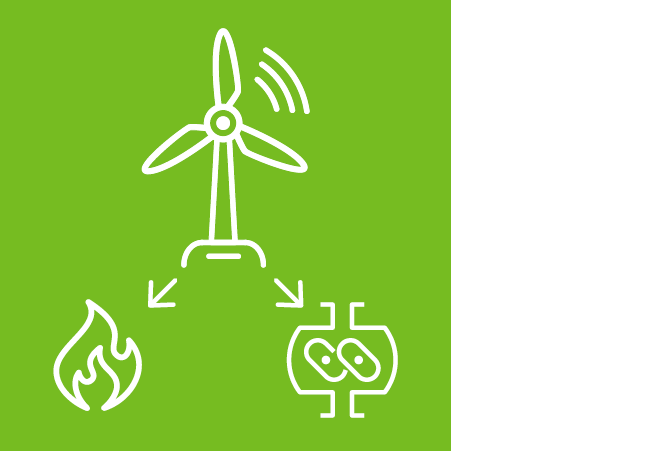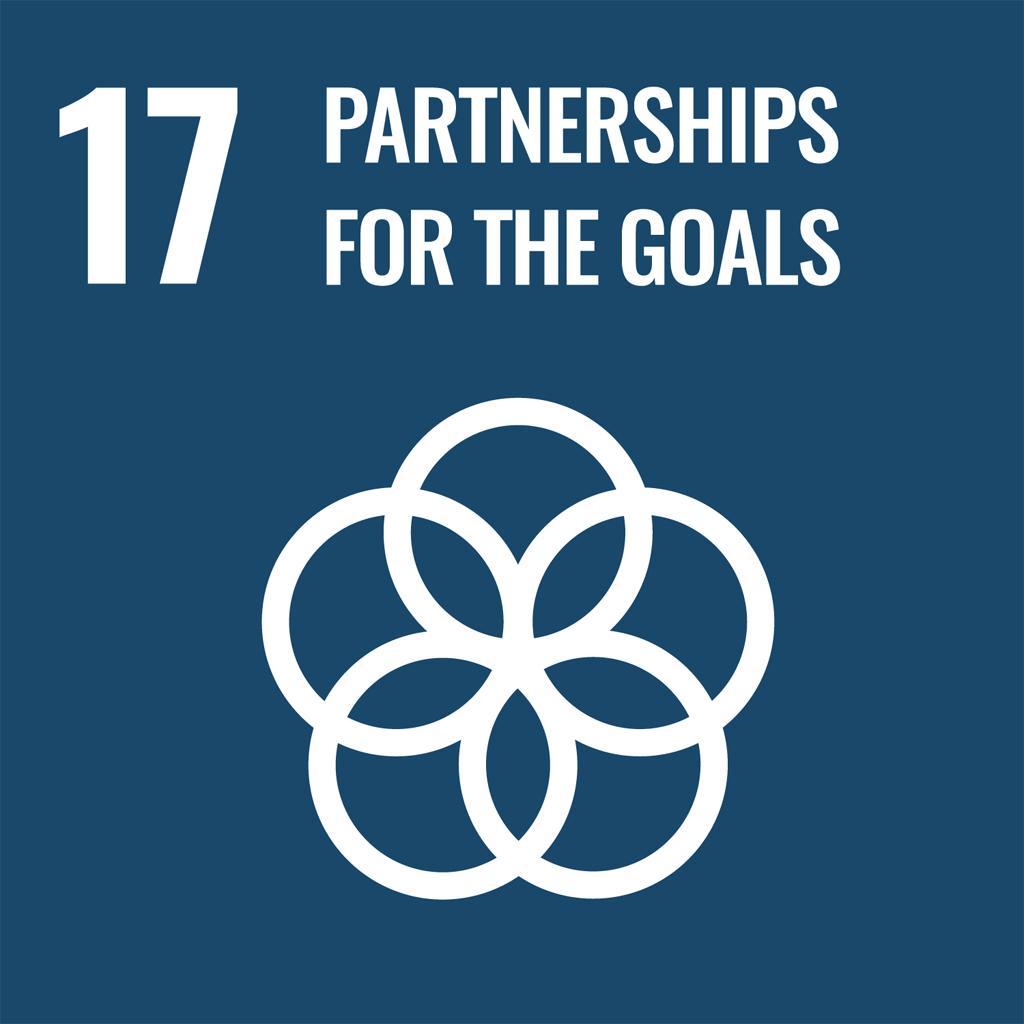Responsibility at Oilon
Oilon has an obligation towards the future of the world and its inhabitants. We constantly develop new solutions for utilizing waste energy, renewable energy sources, and low-carbon and renewable fuels. A third-generation family business, we find it important to preserve nature and enable a future worth living for future generations.
As part of the drive towards a more sustainable future, Oilon has joined the UN Global Compact, the world’s largest corporate sustainability initiative. We have pledged to align our strategies and operations with the ten principles on human rights, labor, environment, and anti-corruption. As a global company, we are well-positioned to promote the principles both through internal efforts and co-operation. We offer a diverse workplace and uphold high ethical standards in our business operations. Our processes and occupational safety and health efforts are regularly monitored and audited.
Moreover, we support each of the 17 UN sustainable development goals. We have identified seven goals for which Oilon has the most to offer.

The core principles behind Oilon’s range of solutions are to improve energy efficiency, reduce customers’ need for energy, and promote the transition towards cleaner energy sources. Combined heating and cooling, which is achieved with industrial heat pumps, represents this ideal perfectly: we extract heat from where it causes problems and transfer it to another location where it is needed.
For example, cooling the servers in a data center generates waste heat at a low temperature, which makes the energy difficult to utilize. With heat pumps, this waste heat can be recovered and reused in space heating and domestic hot water heating or transferred to a district heating network.
By using heat pumps for heating, commercial operators, apartment building owners, and households can reduce their dependence on delivered energy and their energy expenses. Even alone, heat pump-powered heat recovery ventilation can generate 40% savings in an apartment building’s heating costs. Furthermore, the energy required for the building’s heating and domestic hot water system can be covered entirely with ground source heating. The solution consumes only a quarter of the electricity used by direct electrical heating, helping households withstand even sharp fluctuations in electricity prices.
In combustion technology, Oilon focuses especially on the cleanest possible combustion and the use of cleaner and renewable fuels. In ten years, Oilon has managed to reduce the nitrogen oxide emissions of our gas burners by 80–90 per cent. Our latest Ultra Low NOx burners achieve NOx emission levels as low as 2.5 ppm (5 mg/Nm3) while maintaining an excellent efficiency.
Oilon’s standard burners are suitable for firing renewable fuels, such as biogas and renewable diesel. Additionally, Oilon has decades of experience in firing pure hydrogen and fuels with a high hydrogen content. The world sees hydrogen as a fuel of the future: it can be produced with renewable electricity, and hydrogen combustion is completely free of CO2 emissions.

Maintaining profitability is the basis and fundamental requirement of our responsibility. We seek rapid growth, 18 percent per year. Motivated personnel and satisfied customers are the cornerstones of our business. We believe that we have the responsibility to create added value to our stakeholders and the society.
Oilon has more than 400 employees in offices and production facilities around the globe. Our staff turnover is low. On average, our employees stay with us for 9.6 years, and the longest careers have surpassed 50 years in length. For Oilon, it is important that employees enjoy their work and feel safe and comfortable in their positions. We maintain the skills and knowledge of our staff by arranging training opportunities and encouraging our employees to complement their education. Work rotation within the group provides new perspectives and encourages team spirit.

Oilon allocates more than 6 per cent of our turnover to product development. Around 20 per cent of our employees work in R&D. With new technologies, we help operators in the manufacturing industry and the energy sector make a gradual transition to solutions which are based on renewable electricity.
Path to carbon dioxide emission-free heating

Coal
CO2 reduced by > 50%

Natural gas
CO2 less than 50%
CO2 reduced by > 50%

Hybrid
CO2 less than 25%
Renewable electricity and fuel
CO2 reduced by > 50%

Sustainable heating and cooling
CO2 less than 10%
Operators can reduce their CO2 emissions by 50 percent simply by replacing coal (and other fuels that put a heavy burden on the environment) with natural gas. During the transition, Oilon offers heating and cooling solutions that supplement combustion technology by reducing energy needs. The final goal is to transition to sustainable heating and cooling produced with renewable electricity. The highest temperatures required by industrial processes will be produced using renewable and the cleanest possible fuels, such as hydrogen produced using wind power.
In the process industry, Oilon’s heat pump solutions have helped to achieve 89 per cent savings in CO2 emissions. Thanks to high energy savings, a heat pump solution can pay itself back in less than two years. A typical coefficient of performance (COP) is 5–8 and can be as high as 10.
Oilon has an extensive experience in firing demanding fuels produced as byproducts of industrial processes. Renewable pyrolysis oil, which is derived from biomass, is a good example. Pyrolysis oil is acidic and has a high solids content. Yet, it is an excellent fuel, provided that the materials and solutions used in the combustion system are selected with care.
Digital solutions are an essential part of Oilon’s product selection. Oilon Selection Tool helps you select and size your solution exactly to the project’s process conditions and requirements. Our heat pumps have IoT options available, allowing you to monitor and control your system’s operation any time, any place.
Burners and heat pumps are part of critical energy infrastructure, which means that it is essential to make our products as durable, reliable, and safe as possible. Oilon’s products meet strict quality standards, and we have obtained all the necessary certificates and approvals required for operating in major markets. We employ certified ISO 9001 and ISO 14001 quality systems in our production and engineering.

Cleaner energy production can lead to radical improvement in living conditions. In China, for example, Oilon has helped district heating customers to transition from coal to natural gas, eliminating nearly 100 per cent of the customers’ particulate emissions and cutting nitrogen oxide emissions to a fraction of the original. The largest reduction for a single project was achieved through a burner upgrade, resulting in a reduction of around one million tonnes of CO2 per year.
Large properties are typically cooled with water chillers. Traditionally, the condensation heat from the chillers has been simply dumped into the atmosphere. With Oilon heat pumps, waste heat from large buildings such as hospitals can be transferred to a district heating network, allowing the property to serve the community in another role: as an energy source. Overall, heat pumps are an excellent solution for distributed energy production, improving the flexibility of the entire energy network.
The European Commission aims at increasing the recycling rate of municipal waste to 72 per cent by 2030. From a waste management standpoint, it is usually a better choice to utilize the remainder of the waste in energy production than to send it for final disposal at a landfill. Oilon supplies load burners and start-up burners for waste incineration plants. Additionally, our burners are used at hazardous-waste treatment facilities to destroy hazardous and environmentally damaging waste in an environmentally friendly way.

Oilon’s products are renowned for their high quality and durability. Almost all materials used in our products are recyclable. Our product development emphasizes durability, ease of maintenance, and usability.
We offer extensive servicing and maintenance services throughout the product’s life cycle. For example, users can monitor their industrial heat pumps over a remote connection. This speeds up troubleshooting; often, equipment failure can be prevented altogether by fixing the problem beforehand.
Our industrial heat pumps and burners are controlled by advanced automation systems. Thanks to our products’ extensive capacity range, Oilon systems produce only as much energy as is needed. In burners, having a wide capacity range reduces the number of starts and stops required, which can reduce fuel consumption by more than 10 per cent.
In the long term, ground source heating is the most economically sustainable and environmentally friendly heating solution for buildings. Compared to direct electrical heating, a ground source heating system will typically reduce a property’s heating costs by 65–75 per cent. Our household heat pumps feature extensive monitoring and scheduling functions, allowing users to influence their energy consumption directly and in a measurable way. In addition, homeowners can connect a ground source cooling solution to the heat pump’s ground circulation, achieving a COP as high as 20–30.

Oilon is committed to the Science Based Targets initiative (SBTi). The goal for this initiative is to limit global temperature increase to 1.5 °C in accordance with the Paris Agreement. By 2030, Oilon intends to reduce both our own direct and indirect greenhouse gas emissions by at least 46 per cent. Our emissions in 2019 serve as the benchmark.
The primary means of reaching our emission reduction targets include using ground source heating in production facilities, utilizing solar power in production, and investing in upgrades that reduce the energy consumption of our properties. We pursue these goals actively – right now, we are ahead of schedule.
Most of our production facilities already utilize ground source heating and in 2022, our factory in Lahti will transition to carbon-neutral district heating. Since 2017, Oilon’s factory in Wuxi, China has had a solar power plant that provides energy for production machines. Two years later, a 110-kWp power plant was installed in our facility in Lahti, Finland. This plant covers around 6–7 per cent of the factory’s power consumption. The rest of the electricity used at our Finnish facilities has been EPD-certified hydroelectric power since 2020. Additionally, we constantly monitor the use of our vehicle feet, and business travel is governed by strict criteria.

Oilon engages in active co-operation with customers, authorities, and other stakeholders. For example, developing heat pump technology and solutions requires tight co-operation with customers. There are many renewable fuels that have been introduced in the market only recently, which means that shared development projects with fuel manufacturers provide valuable information for both parties.
One of the key goals in Oilon’s communications is to increase our stakeholders’ environmental awareness and understanding of solutions that promote climate action. The technical capabilities of heat pumps increase at such a high rate that it’s hard to keep up with all the new ways of improving energy efficiency and reducing CO2 emissions – especially in industrial processes and energy production. A key component of this communication effort is the product training provided for professionals in the energy sector. Oilon is also engaged in association work that aims at promoting wide-spread adoption of environmentally friendly energy technology.
In 2022, Oilon joined the Science Based Targets initiative, placing Oilon among 3,000 pioneering companies. More specifically, Oilon joined the ranks of the 1,000 organizations whose goals are in line with the initiative’s most ambitious 1.5 °C target for reducing their emission levels. Oilon’s pledge covers Greenhouse Gas Protocol’s scope 1 and scope 2 emissions: reducing direct emissions from our own operations and indirect emissions from the generation of purchased energy.
In addition to SBTi, Oilon has joined the ABB Energy Efficiency Movement. Participants form an international ecosystem, leading the way and serving as an example in the fight against climate change. ABB launched the international initiative to promote activities which reduce CO2 emissions. By publicly committing to climate work, participants raise awareness of climate change and encourage others to act.
